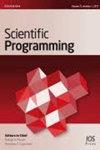Grey Interest Chain Identification and Control Model for Government Investment Engineering Projects Based on Node Identification
4区 计算机科学
Q3 Computer Science
引用次数: 0
Abstract
In the bidding process of government investment engineering projects, collusion between the government and bidders occurs repeatedly, which seriously affects the quality of engineering projects and the effectiveness of the government investment. Therefore, it is necessary to analyze and discuss the collusion between the government and bidders in government investment engineering projects, so as to provide a healthy and sustainable environment for the government investment engineering bidding market. There are two main types of collusion in engineering bidding: horizontal collusion and vertical collusion, and this paper focuses on the vertical collusion process in the engineering bidding process. A conceptual framework of the grey interest chain based on three stages of benefit creation, benefit distribution, and benefit realization was established, 15 major nodes in the grey interest chain were identified, and a grey interest chain control model was constructed, which further identified and classified the nodes into four levels: key nodes, important nodes, general nodes, and unimportant nodes. Finally, through the application of the model in the case, measures such as establishing a cracking mechanism for grey resource integration, increasing the supervision of grey interest chain, and strengthening post-bid audit are proposed. Measures such as including the preparation of bidding documents into the work assessment system and entrusting consulting units or third parties to prepare bidding documents are proposed to establish a crack mechanism for grey resource integration. In the benefit distribution stage, the penalties for the government and the bidders can be appropriately increased, the responsibilities of enterprises and project leaders can be implemented in the system on a reciprocal basis, and a perfect reputation mechanism information can be established. At the stage of benefit realization, the bidding system should be improved and post-bid audit should be strengthened to increase the difficulty of grey benefit realization. This paper will provide a reference for the prevention and governance of vertical collusion in bidding and tendering.基于节点识别的政府投资工程项目灰色利益链识别与控制模型
在政府投资工程项目招投标过程中,政府与投标人之间的串通屡屡发生,严重影响了工程项目的质量和政府投资的效益。因此,有必要对政府投资工程项目中政府与投标人之间的串通行为进行分析和探讨,从而为政府投资工程招标投标市场提供一个健康、可持续的环境。工程投标中的合谋主要有两种类型:水平合谋和垂直合谋,本文主要研究工程投标过程中的垂直合谋过程。建立了基于利益创造、利益分配和利益实现三个阶段的灰色利益链概念框架,识别了灰色利益链中的15个主要节点,构建了灰色利益链控制模型,并将这些节点进一步识别并划分为关键节点、重要节点、一般节点和不重要节点4个层次。最后,通过该模型在案例中的应用,提出了建立灰色资源整合破解机制、加大灰色利益链监管力度、加强标后审计等措施。提出将招标文件编制纳入工作考核体系,委托咨询单位或第三方编制招标文件等措施,建立灰色资源整合破解机制。在利益分配阶段,可以适当加大对政府和投标人的处罚力度,企业和项目负责人的责任在制度中相互落实,建立完善的信誉信息机制。在效益实现阶段,应完善招标制度,加强标后审计,增加灰色效益实现的难度。本文将为投标投标纵向串谋的预防和治理提供参考。
本文章由计算机程序翻译,如有差异,请以英文原文为准。
求助全文
约1分钟内获得全文
求助全文
来源期刊

Scientific Programming
工程技术-计算机:软件工程
自引率
0.00%
发文量
1059
审稿时长
>12 weeks
期刊介绍:
Scientific Programming is a peer-reviewed, open access journal that provides a meeting ground for research results in, and practical experience with, software engineering environments, tools, languages, and models of computation aimed specifically at supporting scientific and engineering computing.
The journal publishes papers on language, compiler, and programming environment issues for scientific computing. Of particular interest are contributions to programming and software engineering for grid computing, high performance computing, processing very large data sets, supercomputing, visualization, and parallel computing. All languages used in scientific programming as well as scientific programming libraries are within the scope of the journal.
 求助内容:
求助内容: 应助结果提醒方式:
应助结果提醒方式:


